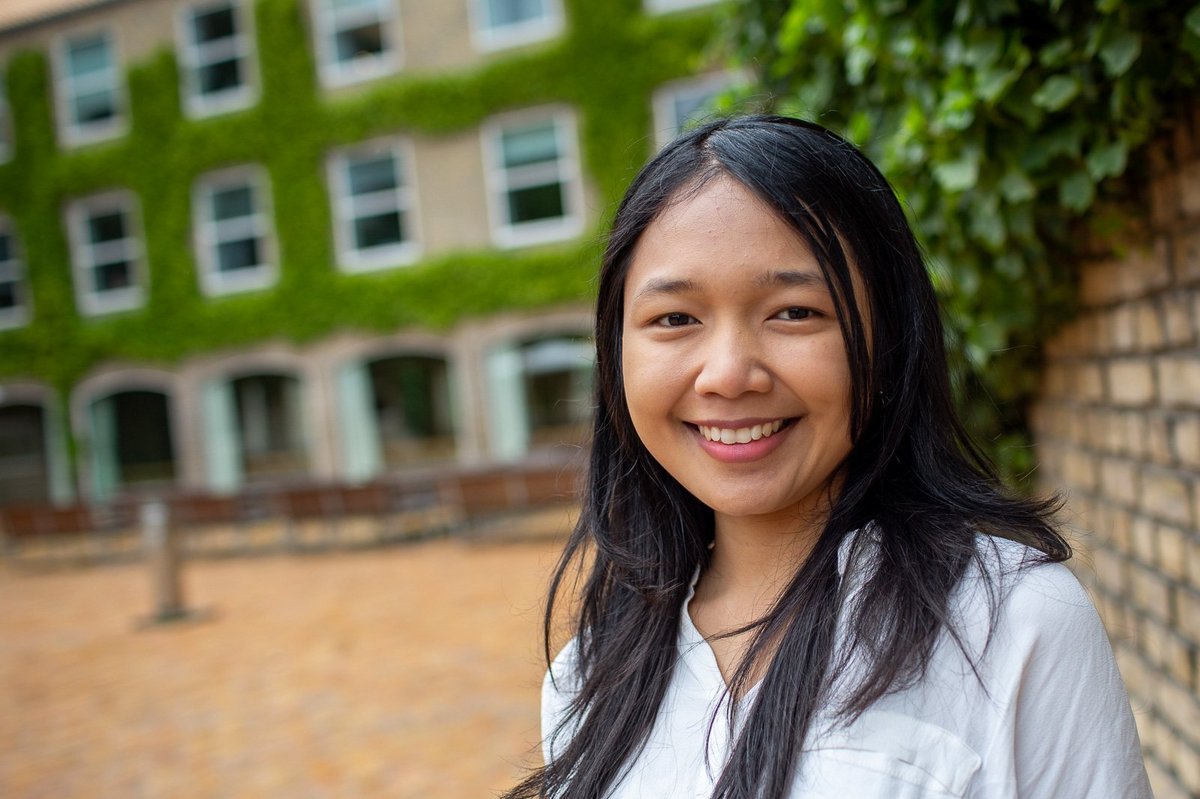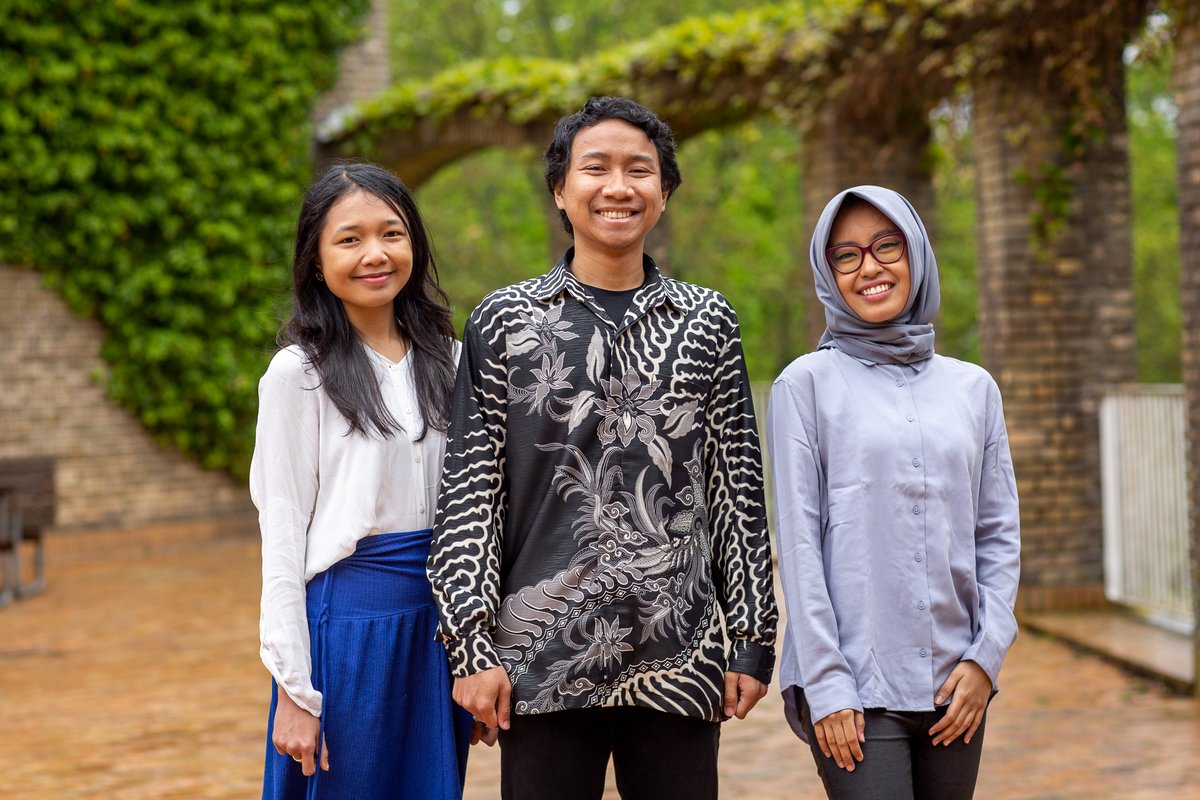
“Denmark had been a dream country of mine to learn about Danish sustainability practices, particularly in architecture, and urban planning. Denmark is home to some major architects and has developed environmental companies that practice sustainable architecture, a concept which I first learned about in my bachelor degree.” She continued, “I first discovered Aarhus University (AU) when I referenced a paper by Nils Bubandt’s in my bachelor degree project. I then found a course called Sustainable Heritage Management at AU, an interdisciplinary course with a focus in architecture and climate change. On top of all that, I thought it could be a nice opportunity, moving to Denmark, since popular destinations at that time for Indonesians wanting to study abroad were to the UK, US, Japan, Korea, Sweden, Germany and The Netherlands,” Mutia explained.
“I felt like the gap between me and my professors, or other experts from other departments, was smaller. I had the freedom to ask, give and discuss opinions, and look for advice. I appreciated that my master’s degree focused on a specific subject but also allowed for interdisciplinary collaboration.” Mutia goes on to explain, “During my master’s thesis, I was supervised by my professor, David Harvey, who has a background in geography. Not only did he share with me a lot of knowledge, but also his large network in urban ecological planning that I can still reach out to. Other than that, I really enjoyed the study facilities at Aarhus University such as the Royal Library and the individual departments’ libraries. AU also has a strong collaboration with big companies through their programs, such as a case challenge and company dating, which allows the students to network with the them. Additionally, the study/life balance is strong here, where aside from studying and working, having a social life with friends is emphasized and encouraged. I often enjoyed hanging out at Studenterhus, a place near campus where students can go to relax and socialize, and playing disc golf with my friends, where the courses are spread around the city and immersed in the beautiful nature here.” She smiles, reminiscing.
Her answer comes quickly, stating “Looking for a part-time job as a non-danish speaker and learning Danish.”
“People rely on trust here. Also the work/life balance culture, people appreciating your work, and the reality that references are very important to be hired by a company.”
“I networked and then reached out people on LinkedIn whom I had met via networking. I asked for feedback from the companies that rejected my application after multiple interviews. I also did a thesis collaboration with a company, which strengthened my network with them.”
“Yes,” Mutia smiles. “The disc golf courses in Tilst and Vester Eng, and the biking path to Moesgård along the coast.”
“When I was studying, I had a student job as a Marketing and Communication assistant in the International Center (IC) at Aarhus University and then as a Regenerative Design and BIM digitalization intern at Ramboll Sweden.”
“During my internship, I actively networked by doing my job to the best of my abilities, being open for opportunities, joining internal challenge events, and showcasing my passion through thesis collaboration.”
She continues, telling us “In the end, three companies reached out to me with job offers based in Sweden and all of them came by way of my ex-coworkers at the company where I had interned. I ended up choosing the offer from a company called Valbek, an engineering organization focused on infrastructure, water, building and digitalization. The company is located in Gothenburg and Malmö, so I will sit in the Malmö office as a BIM Specialist in Computational Design.”
“My student job helped me to understand Danish work culture and to network with people who worked in fields or companies related to my interests. This allowed me to increase my potential job offers in the future.”
“The work/life balance culture, the way people willingly appreciate your work, and the very horizontal hierarchical structure. For example, I was on a project where most of the team was comprised of experts and people in directorial roles, but they still really appreciated my opinions, ideas and my contribution to the discussion. The flexibility and trust in the workplace was also surprising to me. I don’t need to wait for my boss to go home before I’m allowed to leave, I can just go. I also have flexibility in my hours and place of work.”
“Yes, and though it is very challenging, I’m enjoying it. I’m still within my window to get free Danish lessons as an international, so I’m currently in Dansk uddannelse 3 module 5 or equal to B1 language level.”
“I hope to keep inspiring students and people to pursue their studies and career in Scandinavia. I feel this is important for me to do not only as an international, but specifically as a non-EU employee where the rules and regulations are different from that of an EU citizen.”
“I also plan to master the Danish language. Even though I’ll be working in Malmo, I’ll still continue to learn Danish. It is going be challenging but I am excited about it,” she says, enthusiastically. “Perhaps if there is any opportunity in the future, I’ll come back to continue my career in Denmark.”
